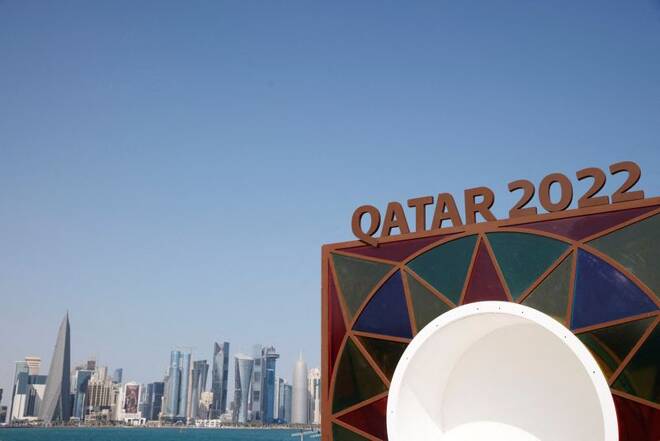Advertisement
Advertisement
Arabs shun Israeli media at Qatar World Cup, cooling hopes of a thaw
By:
By Maya Gebeily and Dan Williams DOHA (Reuters) - Arab soccer fans at the first World Cup in the Middle East are shunning Israeli journalists in Qatar trying to interview them, illustrating challenges facing wider "warm peace" ambitions two years after some Gulf states forged ties with Israel.
By Maya Gebeily
DOHA (Reuters) -Arab soccer fans at the first World Cup in the Middle East are shunning Israeli journalists in Qatar trying to interview them, illustrating challenges facing wider “warm peace” ambitions two years after some Gulf states forged formal ties with Israel.
Israeli officials have voiced hope that the U.S.-brokered Abraham Accords reached with the United Arab Emirates and Bahrain in 2020, and later Sudan and Morocco, would spur further normalisation, including with Arab heavyweight Saudi Arabia.
Interview attempts with Arab fans, however, fell flat with reporters from public broadcaster Kan and top-rated Channel 12 TV telling Reuters they had been mostly snubbed. Footage circulating online showed two Saudi fans, a Qatari shopper and three Lebanese fans walking away from Israeli reporters.
A Channel 13 reporter said Palestinian fans held an impromptu protest next to him, waving their and flags and chanting “go home”.
Qatar does not officially recognise Israel, setting Palestinian statehood as a condition for that. But it has allowed direct flights from Tel Aviv for the World Cup as well as a delegation of Israeli diplomats to handle logistics.
The delegation spokesperson said there had been no reports of ill-treatment of the estimated 10,000 to 20,000 Israeli fans. But he acknowledged “a few incidents” involving Israeli media.
Saudi national Khaled al-Omri, who works in the oil industry and was in Qatar to support his home team, told Reuters he hoped the Tel Aviv-Doha flight route would not become permanent.
“Sure, most countries in the Arab world are heading towards normalisation – but that’s because most of them don’t have rulers who listen to their people,” he said.
Like Doha, Riyadh rules out normalisation for now. But since 2020 it has allowed Israeli airlines to overfly Saudi territory.
The U.S. State Department lauded the Tel Aviv-Doha flights as holding “great promise to bolster people-to-people ties and economic relations”.
Aseel Sharayah, a 27-year-old Jordanian at the tournament, said he would have also refused to talk to Israeli journalists, though Amman signed a peace deal with Israel in 1994.
“If I did see any of them, there’d be absolutely no time of interaction,” said Sharayah, who works for the European-Jordanian Committee in Amman. “Their policies are closing the door on any opportunity for more ties between the countries.”
(Additional reporting by Maya Gebeily in Doha and Dan Williams in Jerusalem; Editing by Ghaida Ghantous and Josie Kao)
About the Author
Reuterscontributor
Reuters, the news and media division of Thomson Reuters, is the world’s largest international multimedia news provider reaching more than one billion people every day. Reuters provides trusted business, financial, national, and international news to professionals via Thomson Reuters desktops, the world's media organizations, and directly to consumers at Reuters.com and via Reuters TV. Learn more about Thomson Reuters products:
Did you find this article useful?
Latest news and analysis
Advertisement
